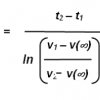
myo-inositol trispyrophosphate (ITPP) = increased oxygen supply to tis
#31
Posted 22 November 2013 - 03:53 PM
#32
Posted 24 November 2013 - 05:49 PM
It's on ebay again guys, two sellers. Including, I think, dopamimetiq's preferred seller.
Can someone in the US please test this substance? Preferably someone with access to an VO2 max test obviously.
I'd be happy to if you paid for it.
#33
Posted 25 November 2013 - 12:28 AM
I found 1 guy selling it on ebay, group buy perhaps
Edited by alex921, 25 November 2013 - 12:28 AM.
#34
Posted 25 November 2013 - 04:42 AM
Very interesting topic, would the benefts be the same as inositol, in regards to depression/anxiety etc.?
I found 1 guy selling it on ebay, group buy perhaps?
"All data obtained indicate that ITPP uptake is mediated by band 3 protein and is thus highly tissue-selective towards RBCs, a feature of major importance for its potential therapeutic use."
Not directly at least. It's a pretty different molecule. RBCs = red blood cells.
#35
Posted 04 December 2013 - 11:40 PM
there are loads of chem suppliers, think im gonna buy some
Is someone aware of the side effects?
3 years the clinical trails were in 2010, Perhaps Ittpp didnt make it ?
Edited by alex921, 04 December 2013 - 11:50 PM.
#36
Posted 04 December 2013 - 11:52 PM
#37
Posted 05 December 2013 - 10:07 AM
Can you provide a citation? This is potentially bad because it would inhibit normal angiogenesis systemically.Ive also read somewhere that the effect stays for up to 2 weeks
#38
Posted 12 February 2014 - 04:04 AM
You are welcome . :P
=null
If someone has a reliable supplier please contact me.
#39
Posted 28 March 2014 - 02:54 AM
I tried my first dose this morning, probably roughly 200 mg sublingual and the taste was very bitter (I take regular inositol supplement in the morning and it has kind of a sweet taste). I can't say that I experienced much of anything, but did have a headache most of the day, which may not be attributable to the ITPP. I appreciate the information you provided on beta-cyclodextrins (BCD) and I have been doing some reading on that. It seems there are a variety of ways to combine it with the ITPP, along with a saline solution. From what I have read, it seems that hydroxy propyl beta-cyclodextrin (HPBCD) is the one of choice for bioavailabilty. I intend to pursue that, but have to admit that I very unclear on the best method to take. The bodybuilding sites mention the limits associated with HPBCD and testosterone when done sublingual, etc. I don't know if those same limitations also apply to ITPP, so I'm curious if injection or some other method is recommended. I would be interested to know more about how to combine ITPP with HPBCD and how to deliver. Thanks.
#40
Posted 30 March 2014 - 01:07 PM
#41
Posted 01 June 2014 - 05:54 PM
Uniquemicals has it. Seems like a low amount from what I'm reading but I think their intention is to take the whole thing in one go. Effects last 1 week I believe.
https://www.uniquemi...7sksetp98od7lg0
Edited by crazepharmacist, 01 June 2014 - 05:54 PM.
#42
Posted 01 June 2014 - 08:22 PM
Uniquemicals has it. Seems like a low amount from what I'm reading but I think their intention is to take the whole thing in one go. Effects last 1 week I believe.
$50 for 100mg is ridiculously expensive. With a little looking around I found this site
http://horseprerace....injection-30ml/
They sell a 30ml injection liquid bottle with 200mg myo-inositol trispyrophonsphate per ml or about 6 gm per bottle. I can't vouch for the company, I just found it on the net. I would do a google on the company before buying but the price is right. The bulk suppliers I found wanted around $1000 per kilo with a min of at least 1 kilo.
#43
Posted 02 June 2014 - 03:34 AM
I realize ITPP is not the same as IP6, but IP6 also appears to have a similar effect... Dirt cheap and more available.
Look Here: http://www.pnas.org/...9/6894.abstract
Long-term physiological effects of enhanced O2 release by inositol hexaphosphate-loaded erythrocytes
"A continuous lysing and resealing procedure with erythrocytes permitted incorporation in these cells of inositol hexaphosphate (InsP6), a strong allosteric effector of Hb. This leads to significant rightward shifts of the HbO2 dissociation curves with in vitro P50 (partial pressure of O2 at 50% Hb saturation), values increasing from 32.2 +/- 1.8 torr for control erythrocytes to 86 +/- 60 torr (pH 7.40; PCO2 40 torr at 37 degrees C; 1 torr = 1.333 X 10(2) Pa). The shape of the dissociation curve was still sigmoidal, although the Hill coefficient was decreased. The life span of InsP6-loaded erythrocytes equaled that of control erythrocytes. The long-term physiological effects of the InsP6-loaded erythrocytes on piglets were increased O2 release and reduced cardiac output. The reduced O2 affinity of the InsP6-loaded erythrocytes was still effective 20 days after transfusion in awake piglets. The electrolyte concentration appeared stable over the 5-day observation period except for a transient, but significant, hyperkalemia immediately after transfusion. The reductions in the O2 affinity of Hb reported here are large compared with previously reported values. Introduction of InsP6 into viable erythrocytes improves tissue oxygenation when, for any reason, normal blood flow is impaired."
------------------------
The full pdf is also available: http://www.pnas.org/...4.full.pdf html
#44
Posted 04 June 2014 - 02:47 PM
Just to clarify things, 3-5g per person will last for about a week?
Can ITPP be suspended in DMSO instead of beta-cyclodextrins for oral administration?
#45
Posted 16 June 2014 - 07:49 AM
THT.co will have it July 1st. I'm so confused on the dose. I am finding different information everywhere. Can someone please clarify the dosage for me?
#46
Posted 26 July 2014 - 12:39 PM
I agree, but then again i do not think there is enough information on it's use for sports dopping purposes.
#47
Posted 26 July 2014 - 03:13 PM
THT is still not open. Does anyone know when they will be?
I've been using the Pre-horse ITTP- 1 to 2 grams per week and notice a definite increase in cardio capacity during swimming and running. I'd still like to try THT's ITTP for comparison's sake.
#48
Posted 26 July 2014 - 05:46 PM
Wow this seems pretty sketchy. Anything that causes hemoglobin to output more oxygen would increase oxidative stress proportionally. This sounds like it could increase lukemia, or damage the immune system, in addition to other cancers over the long term.
If you're healthy and not having heart attacks, the smart thing to do would be not to use this.
#49
Posted 26 July 2014 - 08:34 PM
Wow this seems pretty sketchy. Anything that causes hemoglobin to output more oxygen would increase oxidative stress proportionally. This sounds like it could increase lukemia, or damage the immune system, in addition to other cancers over the long term.
If you're healthy and not having heart attacks, the smart thing to do would be not to use this.
That doesn't sound good. Can anyone else chime in to support this?
I just found this pub med article saying inositol hexaphosphate (IP6) is anti-cancerous and the description of ITPP on THT.co says it can counteract the progression of some cancers.
http://www.ncbi.nlm....pubmed/14608114
Edited by crazepharmacist, 26 July 2014 - 08:43 PM.
#50
Posted 26 July 2014 - 09:29 PM
Wow this seems pretty sketchy. Anything that causes hemoglobin to output more oxygen would increase oxidative stress proportionally. This sounds like it could increase lukemia, or damage the immune system, in addition to other cancers over the long term.
If you're healthy and not having heart attacks, the smart thing to do would be not to use this.
That doesn't sound good. Can anyone else chime in to support this?
I just found this pub med article saying inositol hexaphosphate (IP6) is anti-cancerous and the description of ITPP on THT.co says it can counteract the progression of some cancers.
http://www.ncbi.nlm....pubmed/14608114
I mean im purely speculating. The chemical might have anti oxidant properties or anti cancer properties that would counteract the effect.
I said it's sketchy because I doubt there's very good chemical knowledge about it, or long term studies . Perhaps there are some long term rat studies that might justify safety here?
#51
Posted 27 July 2014 - 07:57 AM
Has there been any studies stating the injectable dosage for ITPP on humans? I'm actually pre-disposed for coronary heart disease, the average risk for people like myself is 49%, but unfortunately my genetics mean that my lifetime risk is 80%. I would really be thankful if i had some sort of guideline so that if i ever do have a heart attack at least i'll be at peace knowing there was at least something i had on hand to help me.
#52
Posted 02 August 2014 - 11:20 AM
I would like to bump on this. Overall my main concern with IP6 would be too much iron chelation, thats why dont use it daily.
My thinking would be that if we can have some more oxygen carried/supplied it would then lower the usage of heart muscles (having to pump less hard/less often). [Less stress for heart every day means longer life.]
On the other hand what is the effect of more oxygen in blood stream? More stress for cells? Is this concern even resonable?
Ittp at resonable price anyone? ![]()
Edited by thedarkbobo, 02 August 2014 - 11:20 AM.
#53
Posted 02 August 2014 - 04:28 PM
Has there been any studies stating the injectable dosage for ITPP on humans? I'm actually pre-disposed for coronary heart disease, the average risk for people like myself is 49%, but unfortunately my genetics mean that my lifetime risk is 80%. I would really be thankful if i had some sort of guideline so that if i ever do have a heart attack at least i'll be at peace knowing there was at least something i had on hand to help me.
It is myocardial reperfusion injury that causes the bulk of the permanent damage in heart attack... If doctors can clear the clot obstructing blood flow to the heart within 2 hours or so in the cath lab, there should be little hypoxic tissue death. Problem is, in hypoxia the tissue becomes acidotic, which liberates reactive free iron. When new oxygenated blood flow is restored, the brief but dramatic spike in oxidative stress is what damages tissue killing the portion of the heart that became acidotic during the event.
Keeping overall stored iron (ferritin) low (around 50) will reduce the amount of reactive iron liberated in a hypoxic event, and chelating free iron during a cardiac event will lower the damage even further.
http://www.ncbi.nlm..../pubmed/1540057
Iron chelation in myocardial preservation after ischemia-reperfusion injury: the importance of pretreatment and toxicity
As the study states: Pretreatment is essential to minimize reperfusion injury. Many doctors recommend those prone to cardiac events carry aspirin with them at all times and take it immediately at the first sign of trouble. Perhaps it might also be wise to have some IP6 in your emergency pill box to chelate free iron?
Edited by synesthesia, 02 August 2014 - 04:55 PM.
#54
Posted 02 August 2014 - 04:45 PM
I would like to bump on this. Overall my main concern with IP6 would be too much iron chelation, thats why dont use it daily.
My thinking would be that if we can have some more oxygen carried/supplied it would then lower the usage of heart muscles (having to pump less hard/less often). [Less stress for heart every day means longer life.]
On the other hand what is the effect of more oxygen in blood stream? More stress for cells? Is this concern even resonable?
Ittp at resonable price anyone?
As the study I posted above states: "The reduced O2 affinity of the InsP6-loaded erythrocytes was still effective 20 days after transfusion"
Mega-dosing is not necessary as the treatment lasts for the life of the blood cells exposed. IP6 appears to be an easier way to produce the same effect of ITPP, and at a dime per capsule (Jarrow) such a bargain!
Research on IP6 also indicates a substantial anti-oxidative effect from the IP6 (TBARS / Lipid Peroxidation), perhaps due to the chelation of reactive free iron. Lower free iron and increased oxygen does not result in oxidative stress. Two different positive effects from one cheap supplement.
#55
Posted 27 August 2014 - 06:55 AM
Bump, any experience reports on this? Wondering as it seems like an overall benefit to intellectual + physical activity.
#56
Posted 28 August 2014 - 12:00 PM
Are there any experience reports on this?
#57
Posted 16 September 2014 - 04:22 PM
Are there any experience reports on this?
Another bump. Got some from tht and would like to try it and what the effects are, but can't find any valuable information on dosage and administration.
#58
Posted 18 September 2014 - 08:30 AM
Are there any experience reports on this?
Another bump. Got some from tht and would like to try it and what the effects are, but can't find any valuable information on dosage and administration.
yes; 2 on page 1.
You want a link to page 1 or do you think you can find it yourself? ![]() Lazy buggers!
Lazy buggers!
#59
Posted 27 October 2014 - 01:16 PM
Hi,
I've used it yesterday at about 150 mg after reading as much as I could about it. Great effects on endurance and I would easily say it increases my max output on a threadmil by 15-20% (I ran faster than usual).
Felt pretty good and had way more energy than usual.
Apparently, the effects last up to 5 days so I will wait to see if it is true but so far, it seems to be working pretty good.
Checked my blood pressure and resting hearth rate several times and it was 119/59 and 51 bpm. As usual.
I took ITTP alone.
Edited by cani!, 27 October 2014 - 01:18 PM.
#60
Posted 28 October 2014 - 09:34 AM
Hi, what kind of administration was used and do you have a source?
Many Thanks!
1 user(s) are reading this topic
0 members, 1 guests, 0 anonymous users



















































